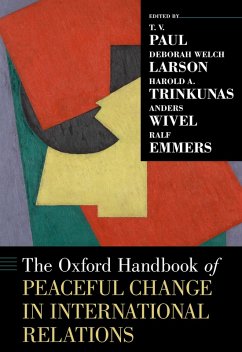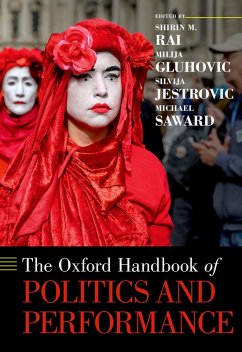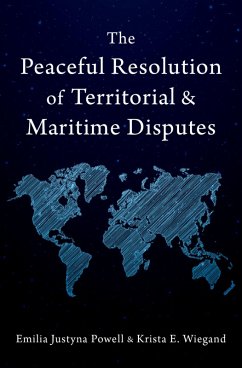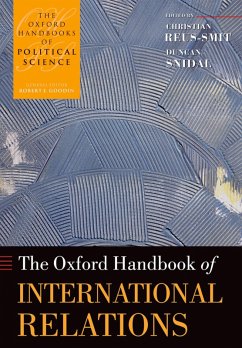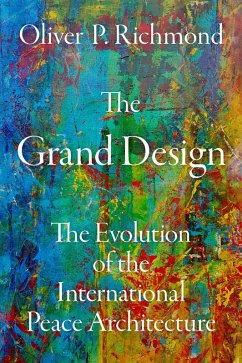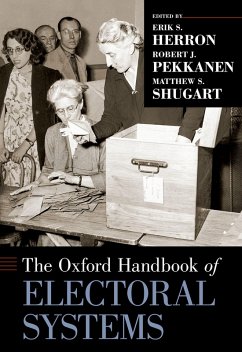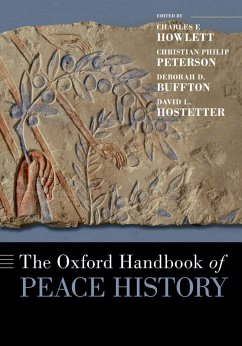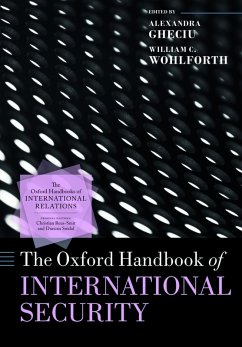
The Oxford Handbook of Peaceful Change in International Relations (eBook, ePUB)
Versandkostenfrei!
Sofort per Download lieferbar
66,95 €
inkl. MwSt.
Weitere Ausgaben:

PAYBACK Punkte
33 °P sammeln!
The discipline of international relations offers much insight into why violent power transitions occur, yet there have been few substantive examinations of why and how peaceful changes happen in world politics. This work is the first comprehensive treatment of that subject. The Oxford Handbook of Peaceful Change in International Relations provides a thorough examination of research on the problem of change in the international arena and the reasons why change happens peacefully at times, and at others, violently. It contains over forty chapters, which examine the historical, theoretical, globa...
The discipline of international relations offers much insight into why violent power transitions occur, yet there have been few substantive examinations of why and how peaceful changes happen in world politics. This work is the first comprehensive treatment of that subject. The Oxford Handbook of Peaceful Change in International Relations provides a thorough examination of research on the problem of change in the international arena and the reasons why change happens peacefully at times, and at others, violently. It contains over forty chapters, which examine the historical, theoretical, global, regional, and national foreign-policy dimensions of peaceful change. As the world enters a new round of power transition conflict, involving a rapidly rising China and a relatively declining United States, this Handbook provides a necessary resource for decisionmakers and scholars engaged in this vital area of research.
Dieser Download kann aus rechtlichen Gründen nur mit Rechnungsadresse in A, B, BG, CY, CZ, D, DK, EW, E, FIN, F, GR, HR, H, IRL, I, LT, L, LR, M, NL, PL, P, R, S, SLO, SK ausgeliefert werden.




